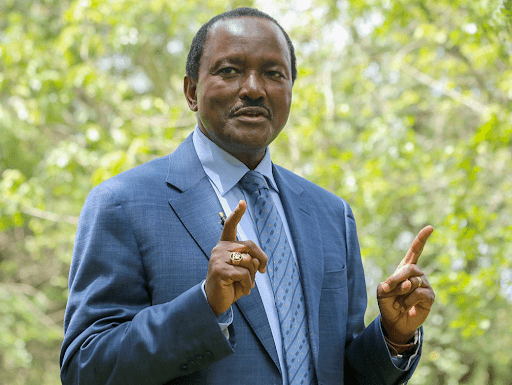Education Cabinet secretary nominee Ezekiel Machogu will face an in-tray overflowing with problems if MPs approve his position.
The most urgent matter is that of an unprecedented wave of Grade VI learners transitioning to junior secondary school in January.
Machogu arrives a a time when the ministry is also faced with pending issues ranging from pre-primary 1 to university.
The issue of transition and infrastructure is yet to be fully addressed.
Outgoing CS George Magoha said 9,800 classrooms had been constructed by the first week of September to accommodate the vast transition. More will be built.
The Teachers Service Commission was allocated Sh1.2bn to train Grade 7 and 8 teachers in CBC.
However, Grade 7 teachers will be upgraded gradually through school-based programmes.
The placement of Grade 6 learners to junior secondary is still being decided.
Parents raised concerns about the selection of learners to JSS and the placement formula.
Magoha said that apart from performance, affirmative action will also be implemented in the placement, as in Form 1 students.
Affirmative action will be for students far-flung areas, slum schools and ASAL schools.
CONGESTION IN SECONDARY
They attribute the congestion to 100 per cent transition from primary to secondary school.
A principal in Bomet county said the school admitted almost 560 students, so the school is building an extra dormitory for 300 students.
“With our board of management, we came up with a temporary dormitory. We used iron sheets outside and timber inside. It accommodates more than 200 students," he said.
The routine was changed so classes begin at 7.30am and not 8am so students are in shifts.
The dining hall was meant for 400 students but the school has 1,600 students, he added.
A parent from a school in Kiambu county said his Form 2 boy has been sleeping in the dining hall.
The school had to increase bed capacity from double-decker to triple-decker to maximise the use of space, but it isn't enough.
“When my son came for half term, he told me they have four rounds of meals because they are too many to fit in the small dining room," Njenga told the Star.
Parents contributed funds to build one dormitory and classroom.
Dagoretti High school currently has 10 streams, but the ministry added the school two more classes for Grade 7.
BROKE VARSITIES
Public universities are facing serious financial constraints, a concern that needs to be addressed urgently by the government.
In the financial year 2019-20, the Auditor General declared 12 public universities technically insolvent.
More universities could end up insolvent unless the government increases their financial allocation, a parliamentary report showed.
The new funding method and Differentiated Unit Cost were blamed for the poor funding of the institutions.
In DUC, the government only funds 80 per cent while the remaining 20 per cent is to be acquired through tuition fees and other projects.
The committee, which is chaired by former Busia Woman Representative Florence Mutua, revealed that despite several efforts to save varsities, more interventions are needed.
“The committee has not, however, been able to fully intervene in tackling systemic challenges facing the higher education sector, especially public universities,” the report read.
The Mutua-led committee clarified that universities facing a cash crunch require long-term financial decisions to solve impending crises.
Another reform vice chancellors blamed was the lowering of university entry cut-off points to determine which students would be enrolled under the government-sponsored programme.
UoN Vice Chancellor Stephen Kiama said previously, institutions would reap big from self-sponsored students.
“And then came the reduction of cut-off points and now universities no longer enrol most students from the parallel programmes,” he added.
HELB DELAYED
University students were recently forced to write to President William Ruto demanding Helb to disburse their loans.
The umbrella student body had asked Ruto to deal with the blame game between Treasury and HELB.
In his letter to Ruto, KUSO chairman Anthony Manyara said comrades were suffering due to delayed disbursement.
"Comrades receive their loan disbursements to enable them to meet tuition and accommodation costs alongside other needs," he said.
Helb CEO Charles Ringera said the delays are caused by different timelines in the financial year and academic calendar.
"We have unsynchronised exchequer releases with the academic calendar," he said.
For instance, students currently are in an ongoing semester, while Ringera says Treasury starts a financial year in June. By this time, students are either in the May or September intake.
Once Machogu is cleared by lawmakers, he is expected to find a way to deal with the delays in Helb disbursement.
Loan delays are among key issues affecting university students.
The Helb boss said in the financial year 2021-22, the board was able to fund 347,166 students with 14.8 billion.
Of these students, 106,048 were from TVETs at Sh3.9 billion with another 35,137 unfunded students.
Helb made the highest collection in 2021 at Sh5.2 billion, and from the Covid-19 penalty waiver, the board recovered Sh550 million.
(Edited by V. Graham










